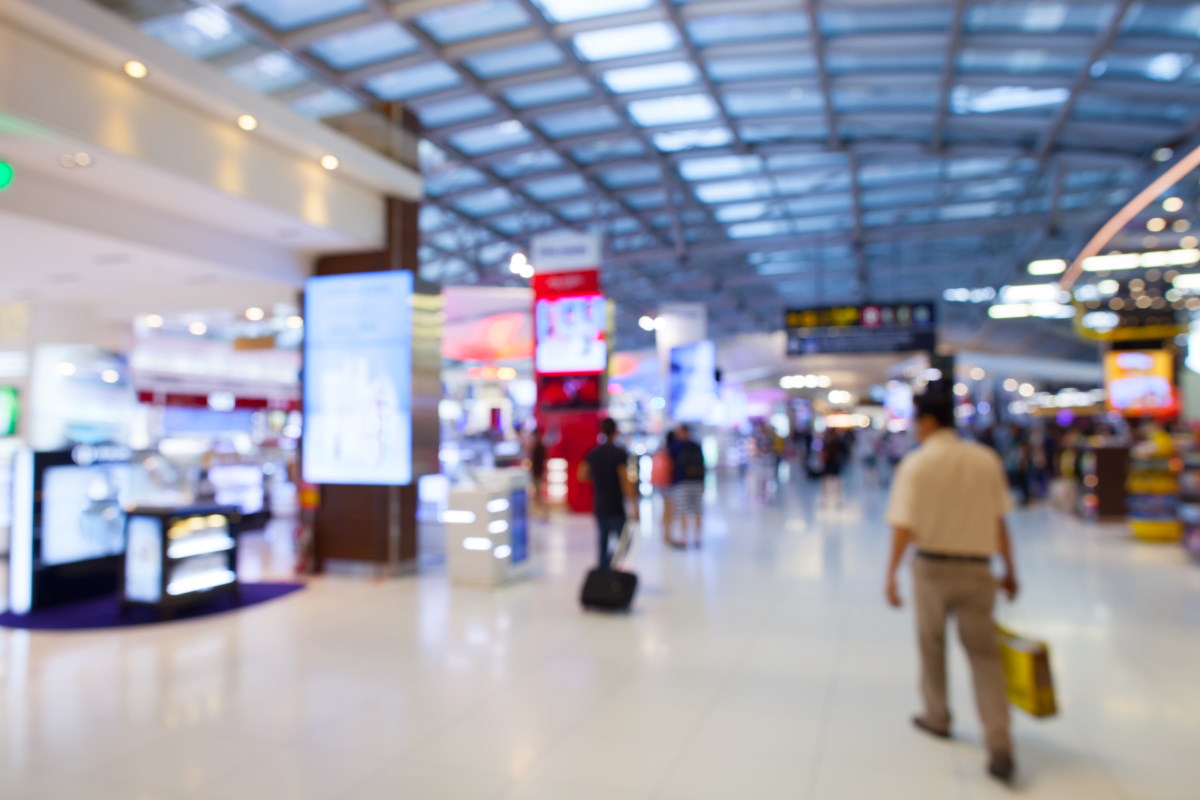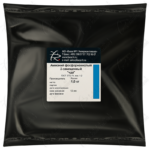
09 Aug Retail Forward: What could be better than the worst?
Posted at 07:18h
in Airlines, Airports, Blog
by World Aviation Festival
0 Likes
Share
Let’s get the ugly out of the way. IATA surprised no one by confirming that 2020 was the worst year on record for airlines.
8 billion passengers flew in 2020, a decrease of 60.2% compared to the 4.5 billion who flew in 2019
Industry-wide air travel demand (measured in revenue passenger-kilometers, or RPKs) dropped by 65.9% year-on-year
International passenger demand (RPKs) decreased by 75.6% compared to the year prior
Domestic air passenger demand (RPKs) dropped by 48.8% compared to 2019
Air connectivity declined by more than half in 2020 with the number of routes connecting airports falling dramatically at the outset of the crisis and was down more than 60% year-on-year in April 2020
Total industry passenger revenues fell by 69% to $189 billion in 2020, and net losses were $126.4 billion in total
The decline in air passengers transported in 2020 was the largest recorded since global RPKs started being tracked around 1950
As Willie Walsh, IATA’s Director General put it: “2020 was a year that we’d all like to forget. But analyzing the performance statistics for the year reveals an amazing story of perseverance. At the depth of the crisis in April 2020, 66% of the world’s commercial air transport fleet was grounded as governments closed borders or imposed strict quarantines. A million jobs disappeared. And industry losses for the year totaled $126 billion. Many governments recognized aviation’s critical contributions and provided financial lifelines and other forms of support. But it was the rapid actions by airlines and the commitment of our people that saw the airline industry through the most difficult year in its history.”
More than halfway through, 2021 is not a huge improvement. The spread of the Delta variant of Covid-19 gives many pause. OAG finds that airlines are in a holding pattern.
“With some 81.2 million seats this week [2 Aug] we are half of one percent down on last week or 391,000 fewer seats, as we have said before, until some major international markets re-open then this is as good as it gets. The airlines frustrations are reflected by a further 24 million seats being removed for sale to the end of October and there remains many flights for sale that are very unlikely to operate soon. Many airlines and airports are now expecting 2021 numbers to be lower than 2020, a scenario that most people would have dismissed as impossible at the beginning of the year; well, the impossible can happen,” OAG’s John Grant writes.
But that’s only the bad news.
The reality is that this too shall pass, as inevitably as the passing of any storm no matter the size of it. What remains to do is rebuilding. That includes fresh opportunities for creative retailing which could make airlines and airports more resilient for the next unexpected storm.
Elude iPhone screenshots
What Eludes Us
A new entry into the travel retail space has piqued interest with a simple solution to travel bookings. Elude is like Tinder for Travel with a budget-first search engine that that gives users immediate access to global flights, leaving from the nearest airport, and accommodations within their selected price range. You decide how much you can afford to spend and the travel booking app will find suitable matches and deliver a full travel package.
Their approach to launch on Instagram was as visually striking as it was interesting, with posts encouraging would-be travelers to spend less time searching and more time exploring.
“Shopping for travel is broken, and we are modernizing an archaic system by supercharging the way people plan their vacations,” said Alex Simon, Chief Executive Officer. “People deserve to feel emboldened to explore, and we want our users to have access to the transformative power of travel more often.”
Elude is the brain-child of avid travelers, Simon and Frankie Scerbo, and was designed to address their personal pain points in travel bookings. The co-founders raised 2.1 million in funding through Mucker Capital, Unicorn Ventures, Upfront Scout Fund, StartupO, Grayson Capital and Flight VC. Elude has also attracted industry veteran advisors, including global entrepreneur from Priceline.com Jeff Hoffman, former Airmap CEO Ben Marcus and prominent social media industry leaders such as former Instagram Chief Marketing Officer, Cliff Hopkins, and Snapchat’s Head of International Partnerships, Juan David Borrero.
“As an active investor and advisor in the travel industry, I have seen numerous ideas and attempts to reframe the travel booking process, and none of them grabbed my attention the way Elude did,” Hoffman added. “Elude reflects the way many travelers prefer to travel, and yet no one has been able to capture that until now. Frankie and Alex are constantly exploring the pain points travelers face as they create and reimagine the future of the industry. From the beginning, they presented a practical and methodical approach for building a product that will make travelers’ lives easier.”
Their primary targets are millennials, who spend over $200B annually on travel, and younger generations (though the young at heart may also enjoy this simplified booking process). Simon and Scerbo see their core users as individuals who “want multiple trips throughout the year instead of spending large amounts of their disposable income on just one trip each year.”
“Our users are craving to explore the world differently. Instead of planning trips to landmark locations, our users are searching for quiet treasures that offer refuge from the hustle of city life,” said Scerbo. “We’re thrilled to lead the industry into its next chapter, rebuilding an ecosystem of adventurers that was disjointed during the pandemic.”
Evolve store
Evolve and Partner Up
Airport retailer Hudson, a Dufry company, has launched a new store-in-store concept Evolve, which boils down to branded, dedicated retail space within their shops. Each Evolve store will be designed with a wide-open storefront, a footprint of at least 2,000-square-feet, and eye-catching digital signage on the store exterior, ensuring the brand offerings are prominently displayed. Beyond traditional checkout, each Evolve store will offer multiple state-of-the-art self-checkout kiosks as well as Hudson’s newly-developed mobile point of sale (POS) capabilities, which will allow Hudson team members to complete transactions from anywhere on the sales floor and spend more time assisting travelers at the brand ambassadors for the shop-in-shop concept.
“The strategy we’ve executed over the years has positioned the Hudson brand as an iconic and trusted anchor of the airport experience for travelers and landlords alike. Now, as we’re witnessing the dynamic transformation of the retail space, we’re taking the opportunity to further leverage what makes it successful: convenience and brand recognition,” said Brian Quinn, EVP and Deputy Chief Executive Officer of Hudson. “Our new Evolve store will transform larger retail footprints, with the existing Hudson convenience model in mind, to curate a multi-brand concept that will allow Hudson to continuously innovate for the modern travel retail environment now and into the future.”
The first Evolve store is set to land at Nashville International Airport (BNA) later this summer, followed by seven additional locations including Dallas Love Field Airport (DAL) and Las Vegas McCarran International Airport (LAS).
In-Flight Retail is Dead, Long Live In-Flight Retail
While the traditional Duty-free cart down the aisle approach to in-flight retail a relic of the past, Valour Consultancy argues it’s would be foolish to herald the end of in-flight retail. In fact, they foresee IFEC-Driven Duty Free and Other Travel Retail to Reach $8.4 billion by 2030.
Here’s their best argument: August 2020 saw an investor pay Korean Air $834 million for its in-flight retail and catering business.
“Korean Air has announced that it is working to improve sales efficiency by actively operating a pre-ordering system for its duty-free goods. Such products would be delivered on-board the aircraft, obviating the need to stock hundreds of reference items passengers may, or may not, ultimately purchase. Other airlines that have implemented similar pre-ordering capability to great success include AirAsia, Singapore Airlines, Lufthansa, Virgin Atlantic and Finnair.”
The shop-to-surf business model, involving partnerships with retailers and IFC suppliers, is also compelling.
“Viasat, for one, is banking on its abundance of satellite capacity to provide a pathway for a passenger to ‘earn’ a Wi-Fi session,” Valour’s Craig Foster writes. “In this scenario, the passenger would log onto the IFC portal and see a range of brands to interact with in order to be rewarded with the ability to surf freely. He or she could choose to watch an advertisement for a product from, say, L’Oreal, and then be landed on the website of a partner like Dufry (a Swiss-based travel retailer) to complete the purchase. When they do so, a Wi-Fi session is activated. In this way, connectivity is an enabler to connect a brand with a consumer.”
Here’s what’s interesting about that approach: it’s a familiar ask to many. Game apps, for example, will offer in-game perks for those who are willing to watch a short commercial.
Things were bad in 2020, and 2021 so far isn’t looking much better, but creative retailing can help fill the gaps. There’s no better time than the present to start exploring the possibilities and implementing creative strategies.








